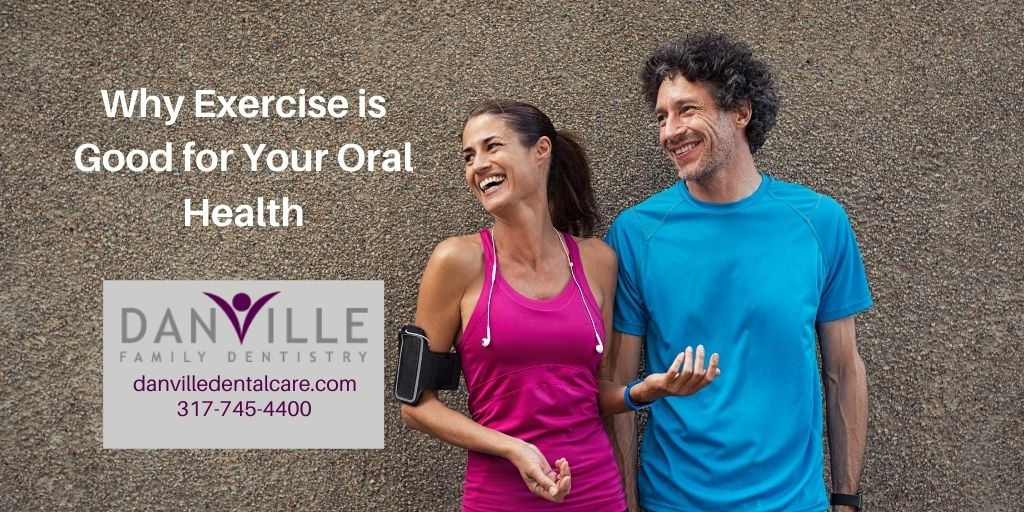Exercise and oral health go together like peanut butter and jelly. Yes, exercise improves oral health. Surprised? Science proves that your overall wellbeing and health has a direct connection to good oral hygiene habits. When you feel well, you’re more likely to exercise and take care of your physical health.
Not only will you look and feel terrific, but you’ll also save money on dentist visits. Plus, you’ll avoid cavities, tooth loss, and periodontal disease.
What is Periodontal Disease?
Periodontal disease is also called gum disease. It’s a severe inflammation of your gums and all the tissue surrounding your teeth. Your gum health is essential because their job is to hold your teeth in place. If your gums are inflamed, they won’t be able to do their job well.
Part of mental and physical wellbeing is exercise, which has an immediate link to your oral health. Untreated gum disease leads to tooth loss, which prevents you from chewing and speaking correctly. Tooth loss also takes a toll on your emotional and social wellbeing.
Gum disease requires professional dental cleaning, which is what we do at Danville Family Dentistry. Make sure you don’t put off your regularly scheduled checkups with us to stay healthy.
How Exercise Improves Oral Health
Oral health affects not only your emotional and social wellbeing, but it also affects you physically. Here’s how exercise improves oral health and prevents other more serious conditions.
Hydration
If you like to play sports, you may find yourself drinking a lot of sugar-filled sports drinks. Frequently drinking sports drinks is as bad as drinking soda. It leaves damaging sugars in your mouth, helping bacteria build up between teeth.
If the bacteria builds up enough and erodes your enamel, you might be on your way to gum disease. To prevent tooth decay, avoid sugary drinks.
However, your oral health depends on your ability to remain hydrated. Drink plenty of water throughout the day, during meals, and after meals. Staying hydrated ensures you’ll have ample production of saliva, which protects your teeth from sugary acids that cause harm.
Weight Watching
For those with a few extra pounds, oral health is dependent upon shedding some weight. Researchers from the Journal of Periodontology found that people who maintain a healthy Body Mass Index (BMI) and exercise regularly had a 40% lower likelihood of having gum disease.
Plus, a National Health and Nutrition Examination Survey found that those who were even somewhat active (exercising fewer than three times per week) were still 33% less likely to get gum disease. You don’t have to move a lot. Just a little wiggle or walk every now and again during the week is enough to keep your oral health in top-notch shape.
Serious Conditions and Medications
Some scientists at Harvard Medical School have linked Alzheimer’s disease to oral health. Bacteria in your mouth may migrate to your brain, harming nerve cells, and inducing memory loss. This is just one reason you should make sure to stay physically active to protect your oral health (and your brain!)
Those who carry excess pounds are more likely to have diabetes. People who have diabetes are more likely to have gum disease and require medication. They’re prone to oral health issues like receding gums, gingivitis, and even tooth loss.
Medication that treats diabetes may have unwanted side effects such as dry mouth. A chronic dry mouth means your body isn’t producing enough saliva to keep your teeth and gums safe.
The good news is that all this can be prevented with regular daily exercise, dental checkups, and by making brushing and flossing a normal part of your hygiene routine.
Stop Problems in Their Tracks
Fortunately, exercise improves oral health. You can stop oral health problems like gum disease by exercising and visiting us for regular cleanings. If it’s been a while since you stopped by to see us, call today at 317-745-4400. We’d love for you to stop in some time.
Are you on Facebook? We are, too! Let’s be friends!
Disclaimer: The information included in this article is for educational purposes only. It should not be used as a substitute for professional medical advice, diagnosis or treatment.


 (317) 745-4400
(317) 745-4400
